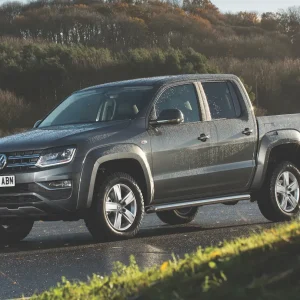Ford’s new series of vans, unveiled at the brand’s Go Further event held in Amsterdam in September, is part of a move that will leave “all LCV lines brand new in 2013,” according to Paul Randle, vehicle line director for global commercial vehicles. 
Fresh vehicles included the two-tonne Transit and Transit Connect, displayed alongside the previously revealed Transit Custom, tested on page 14. The former is the largest Transit variant and is 150mm taller than today’s high-roof model with an increased load capacity. It’s due on-sale next year, and will be available with front- or rear-wheel drive, Ford’s 2.2-litre TDCi diesel unit, and in single cab, double cab and bus body styles.
The all-new Transit Connect is the firm’s second-generation stab at the small van market and is claimed to have best-in-class economy, CO2 emissions, whole-life costs and security. It will come in short- and long-wheelbase guise with “dramatically improved cost of ownership and… the cost of repairs will be low due to the design”, according to chief engineer Darren Goddard. He specifically cited the tail-lights, which have been designed and located to be less affected during a rear-end shunt and are cheap and easy to replace.
There’s also a new family of passenger vans comprising Tourneo Connect and Tourneo Courier, which join the previously unveiled Tourneo Custom.
The Tourneo Connect is a five- or seven-seater model tipped to go head-to-head with the likes of Peugeot’s Partner, promising good practicality. It has sliding rear doors, familiar from the B-max supermini MPV, and Goddard described it as “a working passenger car”. 
All of the seats – in both short- and long-wheelbase versions – fold down to create a totally flat loadspace and the rearmost chairs in seven-seater models have a tilt-and-slide function. Clean diesel and petrol engines comprising the firm’s Econetic- branded low-CO2 systems will make up the engine range.
The Transit Courier, a small passenger van, is likely to appeal to operators in cities and those offering courier services. Ford also says a similarly sized light commercial Transit Cargo will follow.
Speaking at the launch event, Barb Samardzich, Ford of Europe’s vice-president of product development, announced: “We are going for growth in the LCV segments and this vehicle will make its debut in the mini-cargo segment. It’s a segment that’s only evolved in recent years and we expect it to grow rapidly in the coming years.
“This is just a sneak peek of what’s coming in the future. We plan a Transit version of this body style to be on the cutting-edge of the segment – the Transit Courier.”
The new LCVs have been designed and will be built in Europe under the firm’s ‘One Ford’ strategy, which sees vans maintain the same basic platform regardless of which international market they are sold in, rendering them more affordable and adaptable to market worldwide.





